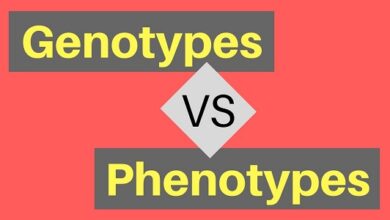Definitions
Definitions
These are the explanations or descriptions that clarify the meaning of a word, term, concept, or idea. They are used to provide a common understanding and language among people, especially in fields such as science, medicine, law, and technology. The Englopedia team will try to provide the definitions which will cover the whole sphere of knowledge.
A definition may be formal or informal, and may vary depending on the context and the intended audience. Formal definitions often use precise and technical language to provide a clear and unambiguous explanation of a term. Informal definitions, on the other hand, may use simpler language and examples to help the reader understand the meaning of a term.
Definitions can be found in various sources, including dictionaries, encyclopedias, textbooks, research papers, and websites. They are important in fields such as education, communication, and research, as they help people to understand and use language effectively and accurately.
The Definitions of Englopedia are important for several reasons, including:
Providing clarity: Help to clarify the meaning of a word or concept, ensuring that people understand the same thing when they use a particular term. This is particularly important in technical fields, where precise language and understanding are critical.
Establishing a common language: By defining terms, we can establish a common language that facilitates communication and understanding across different people, cultures, and languages.
Enhancing accuracy: Clear definitions help to eliminate ambiguity and promote accuracy in communication, research, and analysis. This is especially important in scientific and academic fields, where precision is essential.
Facilitating learning: Definitions are essential for learning and education, as they provide a foundation for understanding and applying new concepts and ideas.
Supporting decision-making: Clear definitions can help to inform decision-making by providing a clear understanding of the meaning and implications of different options.
Ensuring consistency: Definitions help to ensure consistency in the use of language, which can be important for legal or regulatory purposes.
-

What is Philosophy of Life types Frugality and digital nomadism
Philosophy of Life Philosophy of life is the expression that serves to describe a set of ideas or attitudes that are part…
Read More » -

What is Ancient Philosophy features Historical context and Periods
Ancient Philosophy Ancient philosophy is the period between the emergence of philosophy in the seventh century BC and the fall…
Read More » -

What is Philology Historical background and Fields of application
Philology Philology, Science that deals with the study of written texts , through which it tries to reconstruct, as faithfully as possible, the…
Read More » -

What is Philanthropy importance Types and examples
Philanthropy Philanthropy is the act of helping others, through various altruistic and supportive attitudes that collaborate with support for other human beings. Donations…
Read More » -
What is Geometric Figures definition/concept
The geometry is a discipline mathematics that originated in ancient Egypt. When the Nile flooded neighboring lands, they were subject to some sort of measurement…
Read More » -

What is Rhetorical Figure main rhetorical figures and examples
Rhetorical Figure Rhetorical figure or literary figures are language resources that use words in an original or infrequent way to enhance…
Read More » -

What is Feudalism Origin Features Social classes and end
Feudalism Feudalism was a social, political and economic system that prevailed during the Middle Ages , from the 9th to the 15th century. It…
Read More » -

What is Fermentation Purpose with types and examples
Fermentation Fermentation is a process carried out by certain unicellular organisms as part of their metabolism. It usually occurs from carbohydrates or…
Read More » -

What is Phenotype difference between genotype and phenotype
Phenotype “Phenotype is an important concept adopted in Genetics and is usually defined as the set of observable characteristics of…
Read More » -

What is Phenomenology Husserl’s Phenomenology Development Criticism and method
Phenomenology Phenomenology is the study of a set of phenomena and how they manifest themselves, whether across time or space . It is…
Read More »